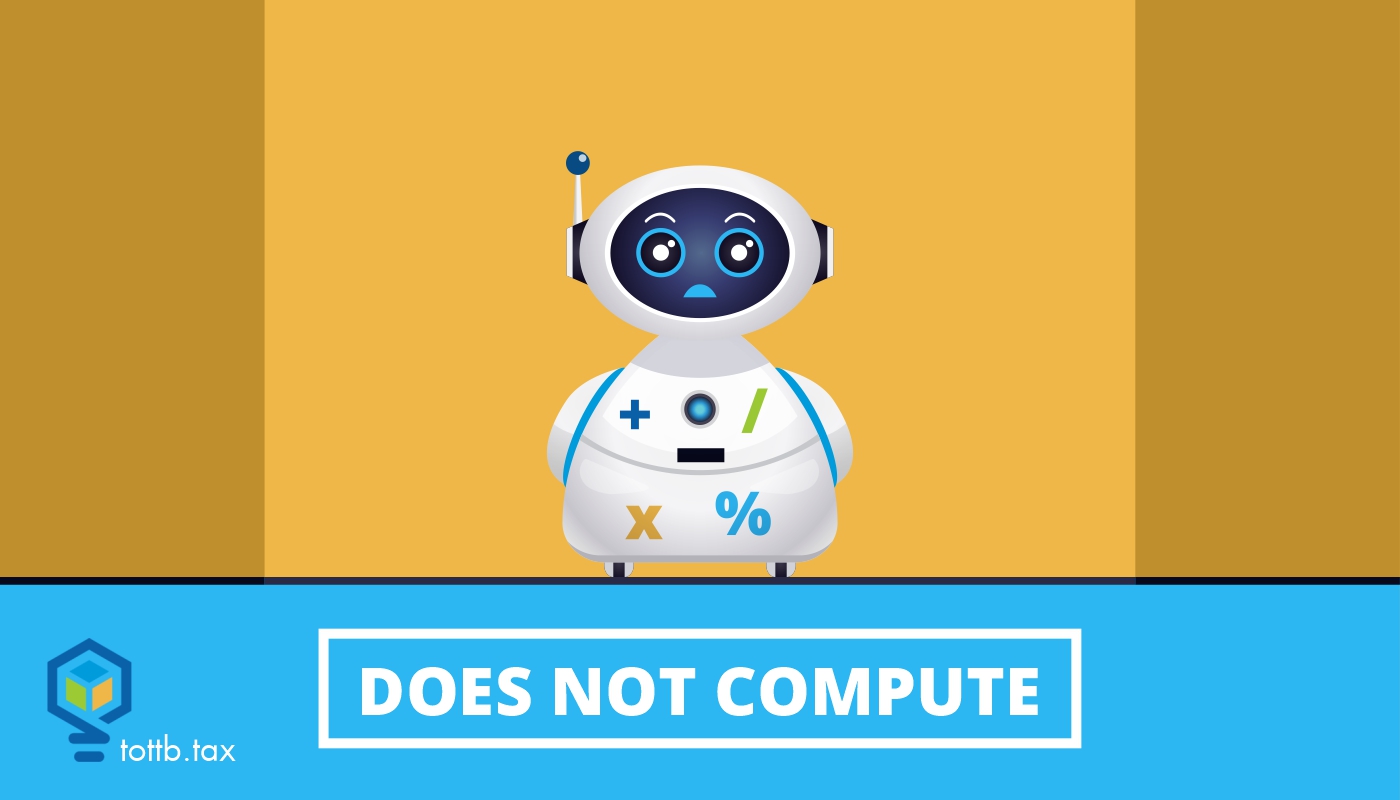CURRENT EDITION

How to Deal with Huge Tax Debt
The only thing scarier than owing Uncle Sam a lot in taxes is being unable to pay the bill. Luckily, the Internal Revenue Service has ways for you to whittle what you owe. Just make sure which method works for you, depending on such factors as the size of your tax debt and what you can afford to pay and when. Don’t panic. Here’s how individual taxpayers can proceed – and what to watch out for.
READ MORELive Webinar Event: Qualified Plans with Unique Options
The IRS is deploying technology and big data to combat compensation under-reporting. What does this likely mean for you and your S Corps? That Reasonable Compensation challenges will likely occur outside the traditional exam process. A challenge may come from the ongoing Employment Tax Program or the recently launched CIP. From our polling, we find most tax advisors and their S Corp clients are dangerously unprepared for an IRS reasonable compensation challenge. If you are working with S corps, here’s the news you need to know...
Read MoreThe Safeguards Rule — Are You Compliant?
Tax professionals must take measures to prevent unauthorized access to customer information. For example, you should limit access to customer data to only those employees who need it for their jobs. Also, outsourcing tax preparation in your firm can impact this security. In October 2019, the IRS added a new question about data security responsibilities to the form to obtain or renew a PTIN. As a tax professional, it’s important to understand what the Gramm-Leach-Bliley Act requires and how you can comply. Keep reading to learn what steps you can take to help protect the confidential information of clients and ensure GLBA compliance.
Read MoreInflation Reduction Act — Up to $40,000 in Tax Credits with Clean Commercial Vehicle Credit
First, you need to get an EIN, then get an LLC, establish business credit, and then you can buy a car in your business name. That process may get you a new car but that does not make it a business expense or eligible for a credit. Friends, that is not how this works; that is not how any of this works. I’ve noticed a recent obsession in the online business world with writing off car expenses. Especially clean vehicles since President Biden signed the Inflation Reduction Act in August. There is a correct way to do so, and then, there are a variety of ways to do it incorrectly. If you don’t believe me, just scroll through TikTok and Instagram, it will make your head hurt. Misinterpretations of Section 179 have set the internet ablaze. That is why I want to make sure we set the record straight on how the clean vehicle credit can benefit businesses. That is if your client follows the guidelines set by the IRS. *Hint, hint: It requires more than buying the car in your business name using your business credit. Let’s look at the amendments and additions to the IRC that make this credit valuable to business owners too. You have an opportunity to help your clients save $7,500 to $40,000 when they buy a qualifying clean commercial vehicle from now until December 31, 2032.
Read MoreRetirement Tax Planning — Retirement Plans for the Sole Proprietor
Many of the same tax advantages perceived as being only available with entity taxation are also available to Schedule C sole proprietors and that includes funding retirement plans. It’s perfectly OK to start and continue to run a business as a sole proprietorship filing a Schedule C for when it makes financial and administrative sense to do so. There are a number of advantages to having a retirement account. Of course, when you contribute to a retirement account, you can deduct your contributions from your taxable income. This can result in significant savings come tax time. Additionally, the money in your retirement account grows tax-free. This means that you can potentially earn a lot more on your investment than you would if it were subject to taxation. A retirement account gives you the peace of mind that comes with knowing you have a cushion to fall back on in retirement. No matter what happens in the markets, you will always have access to your retirement savings. This can provide a great deal of security during uncertain economic times. While retirement accounts can be a great way to save for the future, there are also some potential drawbacks to consider. For one thing, retirement accounts often come with strict penalties for early withdrawal. This means that if you need to access your savings before retirement age, you may be subject to significant fees. Additionally, retirement accounts can be complex and confusing, making it difficult to keep track of your progress. While retirement accounts can be a helpful tool for saving, it’s important to be aware of the potential drawbacks before you decide as a sole proprietor whether or not to open one. Click here to explore the different types of retirement plans available to sole proprietors and the pros and cons of each.
Read MoreTax Days of Our Lives: CPA Firm Contentious Breakup Ends in Tax Court Decision
I am going to nominate the Clark Raymond opinion as the best tax story of the year. At least, it is the best one for CPAs. You have to tease it out of the opinion, but there is a kind of rollicking story of troubled partner relationships. I did 40 years in large local and regional public accounting with a little bit of national icing on the cake and never encountered so much apparent dysfunction. Other commentary on the case has concluded that the lesson is about doing a good job maintaining your capital accounts, but I think the real lessons may be a little different. It is public record, but the guys in the conflict are still practicing so out of professional courtesy I will refer to them as Tom, Dick, and Harry. There is another partner who is part of the story that I will call Jane. Also, for simplicity, I will ignore the fact that they held their partnership interests through single member entities and in Tom’s case in an entity with his wife who did administrative work. And I will refer to the entity involved as “the firm.” The story is every accountant’s nightmare (and would make for a great tax-themed soap opera). Partners disagree. Partners walk out. Clients follow exiting partners to their new business leaving the old partner with debt. Here is the story.
Read MoreInflation Reduction Act Clean Vehicle Credit
Get $7,500 when you buy your Telsa with this new tax credit. President Biden signed the Inflation Reduction Act (IRA) on August 16th, 2022, and the misinformation started circulating almost immediately. I’ve seen it, you’ve seen it, and this means that our clients have seen it as well. It’s our job to help them navigate these new laws to help them maximize their tax savings. Taxpayers have been able to save on their taxes by buying an electronic vehicle (EV) since 2008 . So, the tax savings are nothing new. How the tax savings work has been completely revised under the IRA. That’s where you come in as an expert advisor. The maximum credit for all clean vehicles is now $7,500. A new credit was even added under the IRA to make used EVs eligible for a tax credit. But here is the thing, battery size no longer matters. The assembly, production, and taxpayer income does matter. Not understanding the changes made to Section 30D can cost you and your client. Your client can pay an unexpected additional $7,500 at tax time and you lose a client. Or you can stay the hero, saving them $7,500. I want you to stay the hero so let’s look at the qualifications for the $7,500 under the Inflation Reduction Act.
Read MoreIRS Tech Targets S Corp Officer Compensation
The IRS is deploying technology and big data to combat compensation under-reporting. What does this likely mean for you and your S Corps? That Reasonable Compensation challenges will likely occur outside the traditional exam process. A challenge may come from the ongoing Employment Tax Program or the recently launched CIP. From our polling, we find most tax advisors and their S Corp clients are dangerously unprepared for an IRS reasonable compensation challenge. If you are working with S corps, here’s the news you need to know...
Read MoreIRS MATH ERROR NOTICES – WHAT ARE THEY AND WHY DOES IT MATTER?
The Internal Revenue Service (IRS) mission statement is to "provide America's taxpayers top quality service by helping them understand and meet their tax responsibilities and enforce the law with integrity and fairness to all." The IRS provides forms and instructions, publications, robust web-based resources, and other tools to help taxpayers prepare and file their tax returns – an exercise relished by few. But what happens after you file your tax return? For many, the IRS accepts their tax returns as filed and processes them quickly, which is the end of the process. Others get "post-filing" correspondence from the IRS. The IRS may need additional information to process your tax return or, worse, may examine your tax return (asking you to document some or all parts of the return). There's a middle ground where the IRS adjusts your tax return without the "courtesy" of requesting documentation first. These are the math error notices. Read on to discover more (including that it's not always about math).
Read MoreNOT A MEMBER YET?

SUBSCRIBE TO GET ALL OF OUR
GREAT ARTICLES AND RESOURCES!
CURRENT EDITION

How to Deal with Huge Tax Debt
The only thing scarier than owing Uncle Sam a lot in taxes is being unable to pay the bill. Luckily, the Internal Revenue Service has ways for you to whittle what you owe. Just make sure which method works for you, depending on such factors as the size of your tax debt and what you can afford to pay and when. Don’t panic. Here’s how individual taxpayers can proceed – and what to watch out for.

Client Retention Strategies for Accountants: Building Long-Term Relationships
Client acquisition is crucial for business growth in the fast-paced accounting world. However, retaining existing clients is equally important, if not more so. Servicing long-term client relationships is a testament to your firm’s reliability and is critical to sustained success. My first client is still with me, now more than seven years. Our relationship has grown and changed over time but has also strengthened.
Loyalty and commitment are two of my core values. I’m always looking to provide value to my prospects and clients to attract and retain them long-term. However, some clients do not fit those values, and I have decided to forgo working with them.
I believe that attracting and retaining the right clients starts with your mission, vision, and core values. However, it is also essential to have effective client retention strategies to ensure clients remain loyal and satisfied for the long haul.

Health Savings Accounts vs Flexible Spending Accounts
With the rising cost of healthcare, our clients are looking to save money where they can, especially if they can save money on their healthcare costs and taxes at the same time. As their trusted advisor, you can offer them a basic understanding of what savings tools are available to your clients. Some of the tools available will come in handy if there is a minor unexpected tax bill this spring.
That is why today we’re going to look at the triple tax advantaged health savings account (HSA) and the health flexible spending account (FSA). We’ll look at what they are, who is eligible to open one, and how they can save your clients money each year.








